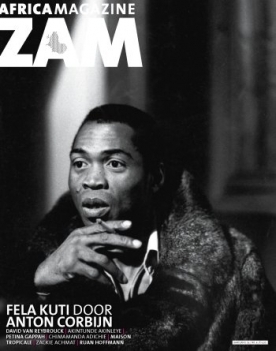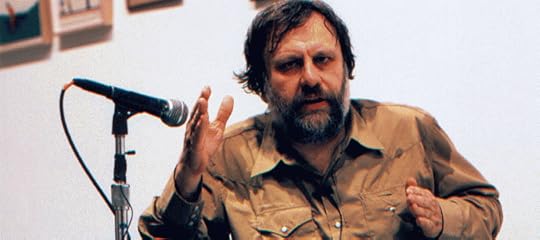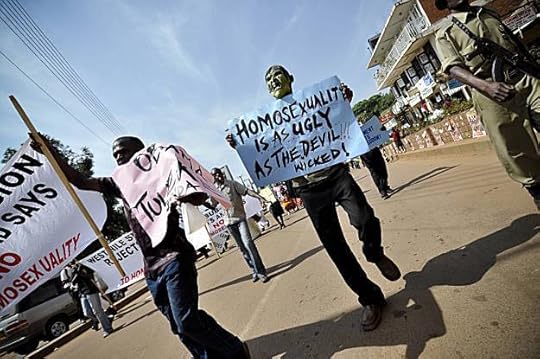Sean Jacobs's Blog, page 690
January 30, 2011
A Lion in Winter
By Peter Alegi
A stalwart of the anti-apartheid sport boycott movement, Isiah Stein, has passed away in the UK. After serving time in prison … in the mid-1960s, Stein left South Africa for Britain where he worked tirelessly for the exiled South African Non-Racial Olympic Committee (SANROC).
Three of his sons became professional footballers in England; Brian had an illustrious career at Luton Town and earned an England cap in 1984. Playing for Chelsea, Mark once scored in seven consecutive matches (a record which stood until 2002); Edwin meanwhile played for Barnet.
It is little-known stories like those of the Stein family from [the coloured township of Athlone in]Cape Town that remind us of the dignity, humility, hard work, and sacrifice of individuals who fought relentlessly to advance the cause of sport and human rights in South Africa and beyond. Rest in Peace Isiah.
* Cross-posted from Football is Coming Home. The image is of his son, Mark, after Luton's most famous victory against Arsenal in the final of the 1988 Litlewoods Cup. In that match Brian Stein, my childhood hero, scored twice. Mark came on as a substitute and won a freekick that set up the winning goal. Relive it here.








Music Break
Video for "Hamdulillah" by Narcicyst featuring Shadia Mansour. The video "… is a global collaborative effort by 10 photographers- from London to Lebanon, Cairo To Canada, Abu Dhabi to America- to create a portrait of the New Global Citizens."








The New Black Atlantic
The writer EC Osondu's first book, Voice of America, was published this month. He won the 2009 Caine prize for African Writing, and currently teaches at Providence College in Rhode Island. He wrote about his top 10 list of immigrant tales for The Guardian. For him, "… in-betweenness–that state of neither fish nor fowl, mortal nor spirit–is also fascinating, and is of course the existential state of the immigrant. He is not fully of this place yet he is no longer of that." As for the list, it includes "My Odyssey: An autobiography" by Nnamdi Azikiwe, who was Nigeria's first post-independence president ("… It was a shock to me therefore on coming to Zik's autobiography to discover that he had been quite despondent and had come close to suicide in his student days in America"), "On Black Sisters' Street" by Chika Unigwe, "Harare North" by Brian Chikwava ("… this novel tears away the veil and allows us see immigrant/exile life in its nakedness"), "The Beautiful Things That Heaven Bears by Dinaw Mengetsu, and "Becoming Abigail" by Chris Abani.
Read Osondu's full list here.
–Neelika Jayawardane.








Fela In The Low Countries
The "Fela! The Musical" craze hasn't reached the Low Countries (yet), but that doesn't stop Dutch ZAM Magazine from including in its latest issue some old, but previously unpublished pictures, of Fela in Paris shot by Anton Corbijn.
The magazine's December issue also features an interview with Belgian author David van Reybrouck about his monumental history of Congo, of which already more than 150.000 copies have been sold within a year — not bad for a work of history. An English translation of the book will follow soon and we can recommend it. There is also a story by Zackie Achmat and work by Akintunde Akinleye and South African ceramicist Ruan Hoffmann. Also included are contributions from writers Petina Gappah and Chimamanda Adichie, and then some more.
But the real reason for plugging ZAM again (see our previous post), is because they're promising to launch an international English edition this year. Looking forward to it. - Tom Devriendt








The Revolution Will be Televised
This could all still go terribly wrong (no one can predict how the Egyptian army will respond) , but it has been heartening watching Egyptians taking to the streets for the last five days to free themselves from oppressive, US-friendly dictatorships. (We can say the same for events in Tunisia and now it seems in Sudan). However, it is not so heartening (or informing) trying to follow these events on American cable news channels like CNN or MSNBC (the less said about Fox News the better). On these channels anchors and guests mainly discuss what the protests mean for secure oil supplies to the West, the security concerns of the United States and its allies (like neighboring Israel), or trying to dictate who should lead a post-Mubarak government (that they "pro-US, pro-Western" mainly). That's where I have tuned to Al Jazeera. The channel has played an admirable role reporting from the ground and showing up the more familiar global news channels.It's importance is underscored by news on twitter–out of Egypt–this morning that Al Jazeera's bureau and its signal on NileSat was briefly shut down. Everyone acknowledges Al Jazeera's impact on the spreading insurrection; some of Al Jazeera's competitors are still coming to turns with the network's fearlessness. (Some even figured it out a while ago.) For now you can only stream Al Jazeera (both its English and Arabic channels) live online or on your iPhone (they have an app) since the major US cable networks refuse to carry the channel.–Sean Jacobs
UPDATE: Al Jazeera English is apparently available on some cable providers in the US. For example, if you're in the Washington D.C. area, you can see it on Mhz5 on basic broadcast, or channel 275 on Comcast digital. (information via Ann Eveleth)








January 29, 2011
Music Break
Video of The Robert Glasper Experience's covering Little Dragon's "Twice," earlier this month.
H/T: Dylan Valley.








Regional Acoustics
Ishilan n-Tenere is an outstanding compilation of acoustic guitar songs from three regions of Senegal and Mali. The bands featured don't have the international renown of other artists from the two musically prolific nations, but according to the album description they have devoted local followings. The recordings have an intimate feel perfect for a quiet afternoon or night in the house.
Representing the three regions, the songs are in diverse styles. One of them reminds me of my favorite Ismaël Lo album. The quality of the recording combined with the ambient noise in the background (I believe these songs were field recordings) really add to the warmth and intimacy of the project. I can appreciate the no frills presentation of the music, the subheading is a simple enough description, "Guitar music from the Western Sahel." The marketing isn't over the top or complicated, it just says what it is. The label acknowledges the current state of music availability so encourages us to find the album for free. You can stream it any time you like, and you can contribute any amount (above $2) to the project. I can't help but feel that this is how the music industry is supposed to work. Financially supporting these beautiful recordings is highly recommended.
The label responsible for the compilation is Sahel Sounds. Christopher Kirkley, the owner, recently gained attention for releasing another compilation that sparked for some, fantasies of discarded cellphone archeology and never to be identified mystery songs. In reality, Christopher acquired the songs by trading via computer and cellphone bluetooth connections. The songs were just great examples of contemporary popular music that people may currently enjoy in Brooklyn or the Banlieue as much as the Sahel. Be sure to look out for more releases and follow the interesting blog at Sahel Sounds.–Chief Boima
with people he met on his travel








'The Ultimate Show of Power'
The ultimate show of power on the part of the ruling ideology is to allow what appears to be powerful criticism. There is no lack of anti-capitalism today. We are overloaded with critiques of the horrors of capitalism: books, in-depth investigative journalism and TV documentaries expose the companies that are ruthlessly polluting our environment, the corrupt bankers who continue to receive fat bonuses while their banks are rescued by public money, the sweatshops in which children work as slaves etc. However, there is a catch: what isn't questioned in these critiques is the democratic-liberal framing of the fight against these excesses. The (explicit or implied) goal is to democratise capitalism, to extend democratic control to the economy by means of media pressure, parliamentary inquiries, harsher laws, honest police investigations and so on. But the institutional set-up of the (bourgeois) democratic state is never questioned. This remains sacrosanct even to the most radical forms of 'ethical anti-capitalism' (the Porto Allegre forum, the Seattle movement etc).
Slavoj Žižek, in a piece about Wikileaks, for the London Review of Books.








January 28, 2011
Music Break
The video for the "Joburg [Johannesburg] Mix" from Australian video and sound artist Pogo's new World ReMix Project. For his new project, Pogo–better known more for his video remixes of films and TV shows–travels the world "capturing sights, sounds, voices and chords, and use them to compose and shoot a track and video for each major culture of the world."
H/T: Elke Zuern








The Life and Death of David Kato
By Heather Doyle
I first had the opportunity to meet David Kato three years ago when he and another colleague from the gay rights organization Sexual Minorities Uganda (SMUG) flew from Uganda to Kenya to help us understand better the human rights situation in the country. David came to the meeting with his arm in a homemade sling after he was beaten by an angry mob who accused him of immorality because he was gay. After the attacks, he continued his human rights work with serious personal sacrifice.
Yesterday, David was was found murdered in his home, apparently bludgeoned to death with a hammer. Human rights groups around the world are calling on the police to promptly and effectively investigate the murder.
This devastating news comes only weeks after David won an important victory for lesbians and gays in Uganda. Late last year, a local tabloid called Rolling Stone (no connection to the U.S. magazine) published David's picture and name, along with other lesbian, gay, or transgender individuals, with the headline "Hang Them." David, along with two other activists, sued the publication for violating their right to privacy. They won the case on January 3. In addition to ordering compensation for the activists, the judge issued an injunction prohibiting any further publication of the identities and home locations of individuals labeled "homosexuals."
Times have been increasingly precarious for sexual minorities in Uganda. In 2009 a sweeping piece of legislation was introduced before the Ugandan parliament which would make homosexuality—already an illegal offense—punishable by life imprisonment. "Repeat offenders" and those who are HIV positive would be subject to the death penalty. In his role as SMUG's advocacy officer, David worked to advocate against the bill and to bring mainstream human rights voices into the fight to recognize the gross human rights violations that the legislation would legalize.
David used his life to call for a more humane and safe world, where human rights are respected. Whether he died as a consequence of his work will likely remain undetermined—the police have little motivation to identify this vicious attack as a hate crime. What is clear, however, is that the Ugandan government has created an environment of intolerance that puts the lives of human rights activists at extreme vulnerability. David's death is a tragedy, but we must ensure his life's work was not in vain.
Source. See also the tribute by Ugandan blogger Nsubuga.








Sean Jacobs's Blog
- Sean Jacobs's profile
- 4 followers












